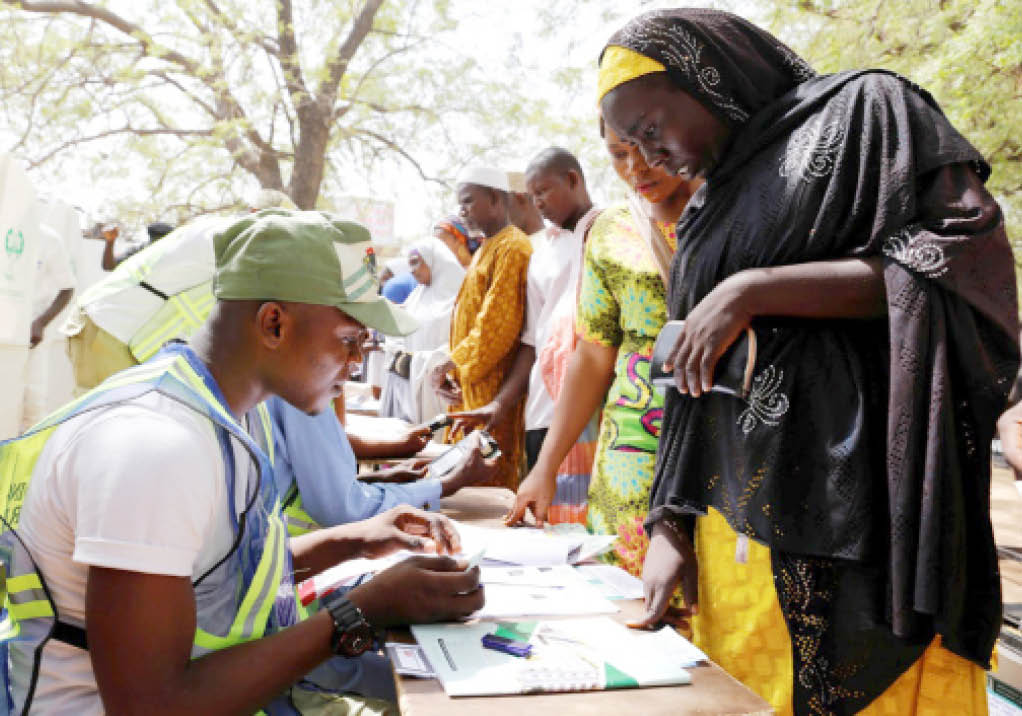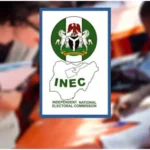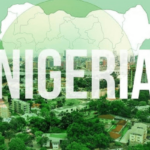A new report by the Centre for Democracy and Development (CDD) explores the factors the Independent National Electoral Commission (INEC), the federal government, and other stakeholders must contend with as Nigerians and the rest of the world look towards the 2023 general elections, amidst high levels of economic and security crises in the country
Unless the electoral body, the federal government and other stakeholders act quickly, rising insecurity, fake news, money politics, religion and sentiments may frustrate the outcome of the 2023 elections, the CDD, a frontline pro-democracy think tank, has warned.
Boko Haram: 98 Chibok girls still in captivity – Military
Uncertainty Trails FG’s N348trn National Development Plan
Nigeria’s seventh general elections since 1999 will be held in February and March next year. In Nigeria’s commercial nerve centers – Lagos, Kano, Abuja, Port Harcourt and other cities – the signs are everywhere as the cities are wearing new looks. Even in the remote villages, largely deserted by the high and mighty, the tell-tale signs are evident.
As the campaign posters compete for space, littering the streets in their numbers, politicians and their patrons are dishing out campaign promises. Raging debates and spat on the social media have also reached a fever pitch. In six months, Nigerians will head to the polls to choose their next leaders who will occupy over 1400 elective positions.
But the CDD, in its new report released Tuesday in Abuja, the Federal Capital Territory, the frontline pro-democracy group x-rays the country’s bumpy political climate and identifies “six key issues” the federal government and all stakeholders must contend with and address to ensure free, fair and peaceful elections.
The report, titled, ‘Nigeria’s Presidential Polls: A SWOT Analysis,’ and signed by CDD’s director, Idayat Hassan, raises concerns over what it describes as an “unprecedented epidemic of insecurity” going into the elections, rising logistical challenge, “the possibility of widespread loss of confidence” in INEC, arising from undue pressure from political actors, the influence of religion and ethnicity, the spread of fake news on social media, and the ways in which the new electoral act might influence the election.
The report, however, underscores some opportunities for the election, such as increased youth participation, and provides several recommendations for averting these challenges and ensuring a free, fair and peaceful election.
Security threats
Insecurity got a top spot in the report. Insecurity, the report stresses, remains a critical issue, particularly in the North West and South East, with many cases of kidnapping where police officers were taken hostage.
One of the latest of such is Daily Trust’s reportage of how CSP Mohammed Gyadi-Gyadi was kidnapped on the morning of June 27 while driving to report for duty at the police division in Birnin Gwari town, the headquarters of Birnin Gwari Local Government Area.
The report added, “Nigeria is currently facing an epidemic of insecurity. Holding credible polls in this context that guarantees the security of voters and INEC personnel will be a major challenge. The ability of INEC to conduct continuous voter registration has already been questioned as insecurity has prevented the commission from deploying to all wards across all electoral districts
“While electoral violence is not a new phenomenon in Nigeria, the attacks on election infrastructure, such as INEC offices and staff, as well as security forces, has become of major concern in recent months.
“The ability of INEC to conduct voter registration has already been questioned by some citizens who have complained of not being able to register to vote, as the commission has not been able to deploy to many wards across all electoral districts.
“In addition, the fear of attacks by bandits, their terrorist accomplices and separationist agitators, may also result in many voters not showing up to exercise their franchise out of concern for their safety. A widely disrupted election in the North West also raises challenges about the acceptability of electoral outcomes at the presidential level, given that aspirants need 25 per cent of votes cast in two-thirds of Nigeria’s states,” the report states.
The report further notes concerns about the safety of election personnel, voters and electoral materials, as well as the hurdles politicians would face as cases of kidnapping, violence, banditry, insurgency and communal clashes persist.
Moreover, the group noted that the secessionist agitations in the South East could reduce voters’ turnout, adding that this may not favour either the Labor Party’s presidential candidate, Peter Obi or the Peoples Democratic Party candidate, Abubakar Atiku.

Logistical challenges on INEC
While reflecting on the humongous logistics challenge electoral officials face every year, the CDD said reaching the 176,846 polling units with election material would be a difficult task.
It estimated that the INEC required about 1.5million and security officials to successfully prosecute the elections.
For the CDD, the training of these personnel is critical to the elections’ success.
The report partly reads, “The commission is set to deploy 176,846 polling units, a 56,872 increase in 2019. This will require the recruitment and training of close to 1.5 million poll and security officials, about four times the size of the Nigerian military.
“Road vehicles are the predominant mode of transportation and account for 80 per cent of goods trafficked in Nigeria, but only 20 per cent of the road network in the country is paved. Improvements have been made regarding internet access, but electricity is still largely absent for the majority of Nigerians.
“If roads are impassable, electricity epileptic and communication infrastructure rudimentary, this will affect the quality of election administration. For example, INEC uses secondary schools across the country as registration area camps, the last staging posts for election-day deployment. Most of these schools are in a terrible state and INEC will have to provide electricity, toilet facilities and water for its staff to be able to use those schools. These are obstacles that INEC must overcome as it conducts elections across the country.”
The CDD report, however, suggests that a prompt release of the entire INEC budget could help mitigate some of these issues.
Influence of religion and ethnicity
The report also underscores the impact of religion. According to the civil society group, religion, ethnicity and money politics had shaped the emergence of the four major presidential candidates: Atiku Abubakar of the Peoples Democratic Party (PDP), Bola Tinubu of the All Progressives Congress (APC); Peter Obi of the Labour Party and Rabiu Musa Kwankwanso of the New Nigeria Peoples Party (NNPP).
Making a reference to The Redeemed Christian Church of God’s newly established Directorate for Politics and Governance and the Muslim-Muslim ticket debate, it states that there is a strong likelihood that an ethnic and religious map will be drawn by the votes in the 2023 elections with the risk that it will become instrumentalised to serve political goals.
Fake news
The report also noted that the impact of young people cannot be underestimated in the elections because the country has a majority of youth population, which comprises more than half of the registered voters. The report sees this increased participation of young people in the elections as a positive for Nigeria.
It states that since almost 70 per cent of the newly registered voters fall into the youth bracket, if they could build on the unity established during the #EndSars protests against police brutality in 2020, they could pose a significant challenge to the status quo.
The report, however, is concerned with how the spread of fake news might influence the elections. It states, “The instrumentalisation of fake news: from half-truths to wild conspiracy theories, to fabricated news, disinformation and misinformation will circulate widely online and offline again in the elections.
“Already, political parties and supporters are utilising fake news to damage citizens’ confidence in the elections, glorify their candidates and delegitimise opponents. TikTok is a new and increasingly popular platform for spreading fake news, unlike in previous elections where Facebook, WhatsApp and to a lesser extent Twitter were the most influential platforms, although there remains a high amount of cross-platform posting.
“The long campaign period will likely only increase the level of online and offline toxicity in the run-up to the polling days. Even during voting and in its immediate aftermath, the likelihood of fake news being used to suppress voters, cause confusion and incite violence is likely.”
Public confidence in INEC
The CDD also reflected on the backlash generated by the replacement of 19 resident electoral commissioners, warning that the challenging lack of persons with integrity in power will impact the elections.
“Concerns have been expressed that the ruling party may pack the commission with partisan loyalists to serve as resident electoral commissioners in replacing the 19 whose tenures recently ended or are ending soon. Transparency will be key in ensuring the public retains confidence in the commission’s impartiality,” the report stated.
Electoral Act 2022
The group, however, stressed that the 2022 Electoral Act may have introduced several changes that would continue to improve the credibility of elections.
These changes, it said, include the early appropriation and release of election funds as INEC is to get its funding for at least one year before the general elections.
The statement partly reads, “INEC is now required to issue the notice of polls 360 days before general elections. This entails an early release of the timetable and schedule of activities to be undertaken by the commission. The campaign period of 150 days provides candidates with the chance to engage voters extensively across the country.
“Debates over the legality of Smart Card Readers, the device previously used for accreditation of voters, is settled by section 47 of the Act, which empowers INEC to use the Smart Card Reader or any other device for accreditation.
“Political parties must now complete their primaries and submit the names of candidates 180 days to the general elections. This gives the commission sufficient time to produce the materials required for the general elections, such as ballot papers.
“The Act empowers INEC to determine the form of transmission or transfer of election results, opening up the possibility of electronic transmission.
“INEC is now mandated to ensure that persons with disabilities and other vulnerabilities are properly assisted to participate in the process.
“New limits have been set for amounts of money that political parties and candidates can spend in elections, as well as the amounts that can be donated to them. However, instead of diminishing the role of money in politics, the Act increased the campaign financing limit from N1billion to N5billion for presidential candidates, with ceilings raised across contested positions. Furthermore, lax compliance with, and enforcement of campaign finance regulations, has not been addressed.
“Unlike the 2010 Electoral Act which defined over-voting in terms of registered voters, the new Act defines it in terms of accredited voters. This will greatly reduce the challenge encountered by the commission, whereby elections are easily declared inconclusive because of tying it to registered voters, even where turnout is very low.”
Other concerns raised in the report are inconclusive elections. According to the report, cases of inconclusive elections would be drastically reduced in 2023 as the new electoral law now defines over- voting in terms of accredited voters as against registered voters.
With this improvement, INEC would also be able to, according to the new law, review results signed under financial inducement or duress.
But this will not happen easily, the group noted. Unless INEC judiciously applies the technology, which it had pushed for and granted through the new electoral act, the report notes that the transparency of the election may not be improved.
It adds that the poll’s credibility would also depend on the degree to which citizens could vote freely and unencumbered.
“But it will also have implications for the 1,491 positions up for grabs across the country if polling is patchy or fails completely in some areas. This in turn could trigger a constitutional impasse, especially if returns cannot be made either in the national, or any subnational elections, further undermining confidence in elections and the representatives they produce,” the report reads.
Recommendations
To forestall these problems, the group recommends that there should be high-level engagements involving political parties on the rising insecurity and its impact on the general elections.
According to the CDD, among other things, the engagements should address a collective response to the possibility that elections may not be held in some parts of the country and the implications of that for the presidential and other elections.
The CDD urged the government to invest more in peace-building efforts in communities experiencing conflicts, such as conflicts between farmers and herders, to ensure that such conflicts do not undermine the elections.
It advised the security agencies to continue to tackle insecurity and conflict, warning that insecurity should not be used as a tool to serve political interests, such as voter suppression in some parts of the country.
“INEC must be fostered by all stakeholders and the commission itself, including the appointment of persons of high integrity who are not politically aligned as national commissioners and resident electoral commissioners.
“INEC must ensure that the technology it is deploying for the elections works efficiently, particularly the BVAS and results from management systems. The commission must communicate any challenge to the public in a clear and timely manner.
“INEC should hasten the production and delivery of Permanent Voters Card (PVC). The commission should develop an alternative plan to guarantee that persons whose PVCs are not delivered on time are not disenfranchised,” the report states.
The CDD also urged the media to engage more intensely with candidates on their plans to deal with insecurity and conflicts, should they get elected.




